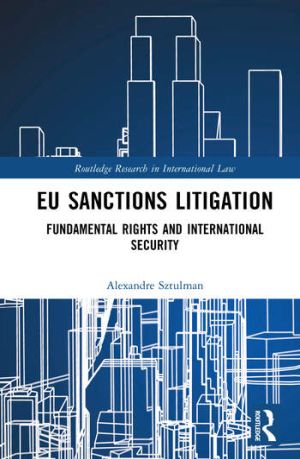
This book comprehensively examiners the EU judiciary’s approach to international sanctions, drawing on recent case law from the Court of Justice and the General Court. It addresses the procedural framework governing judicial review, alongside substantive evaluation of restrictive measures in terms of their legality and conformity with fundamental rights and procedural guarantees.
As a cornerstone of the EU’s Common Foreign and Security Policy (CFSP), restrictive measures, particularly international sanctions, serve as the Union’s primary tool for addressing actions that conflict with its core values. Today, the EU stands as a leading global authority on sanctions, both through implementing United Nations Security Council measures and through independently enacted, autonomous sanctions. These complex mechanisms, blending preventive and punitive approaches, impose financial freezes, sector-specific embargoes, and various restrictions targeting governments, legal entities, and individuals outside the EU. Providing a detailed analysis of how these measures intersect with repressive administrative and criminal law, the book sheds light on the judicial balance between effective enforcement and the protection of fundamental rights. Examining both technical legal issues and broader principles of justice and human rights, the book includes recommendations for refining restrictive measures within the EU.
This book will be of interest to researchers in the field of EU law, international security, and human rights, offering a nuanced understanding of the judicial review processes that shape the EU’s sanctioning powers.